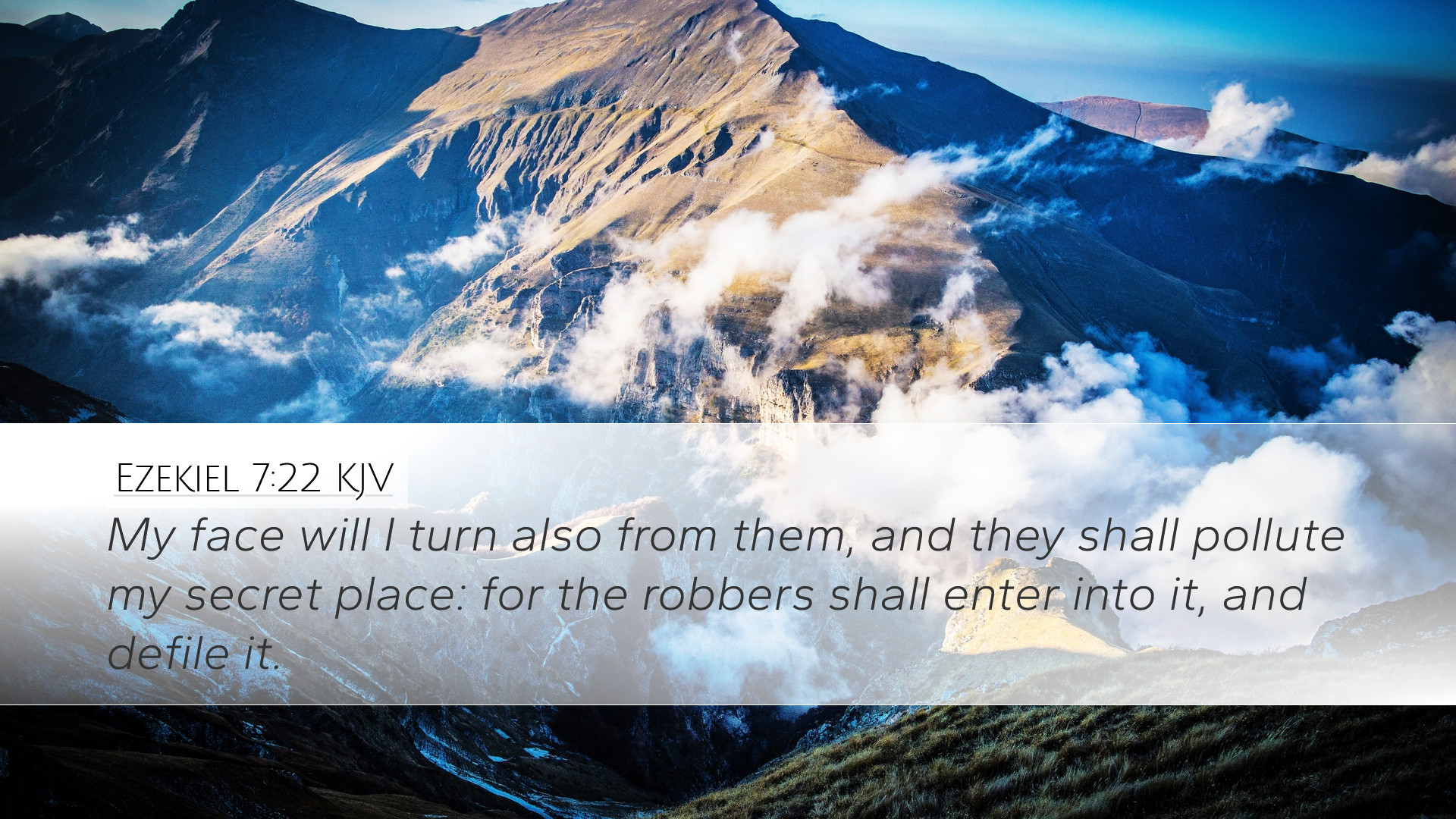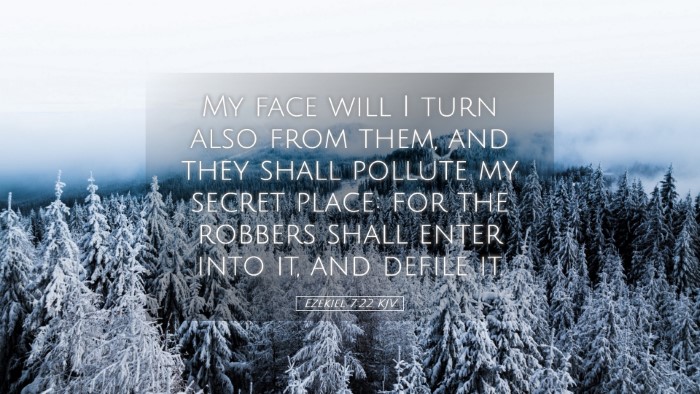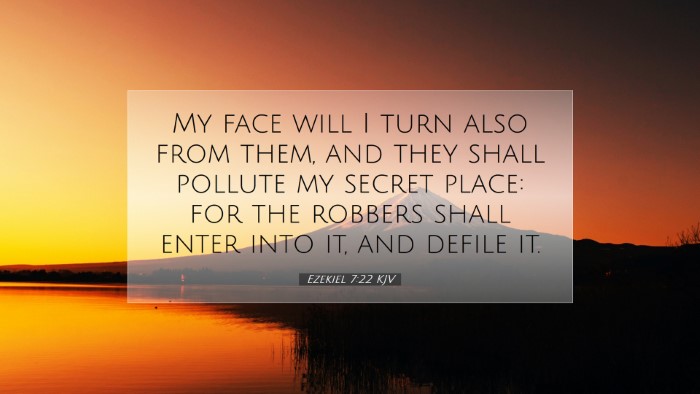Ezekiel 7:22 - Commentary Overview
Bible Verse: "My face will I turn also from them, and they shall pollute my secret place: for the robbers shall enter into it, and defile it."
Context of the Verse
This verse occurs within a prophetic context where Ezekiel is delivering messages of impending judgment upon Israel due to their transgressions. Throughout this chapter, the emphasis is placed on the dire consequences of sin and the ultimate withdrawal of God’s protective presence.
Matthew Henry's Commentary
Withdrawal of Divine Favor: Matthew Henry emphasizes that when God turns His face away from His people, it is indicative of a serious estrangement. His absence leads to the pollution of what was once sacred, highlighting a critical turning point in the relationship between God and Israel.
Pollution of the 'Secret Place': The 'secret place' refers to the holy sanctuary where God was believed to dwell amongst His people. Henry points out that this defilement signifies a profound loss of sacredness, as sin invites desolation and opens the door for invaders, symbolizing how spiritual decay leads to physical destruction.
Albert Barnes' Commentary
The Significance of God’s Face: Barnes notes that turning away God's face signifies His disfavor and the consequent absence of His blessing. He further suggests that God's turning away is not arbitrary but follows humanity's refusal to repent and acknowledge God's sovereignty.
Implications of Defilement: The commentaries elaborate that the entry of robbers into the 'secret place' implies both literal and metaphorical invaders representing external forces that ravage the sacred. Barnes warns that when divine protection is withdrawn, vulnerability to earthly oppressors becomes a reality.
Adam Clarke's Commentary
Divine Indignation: Clarke underscores the gravity of God’s indignation leading to His withdrawal. He views this moment not merely as an act of divine abandonment but as a direct response to Israel's persistent disobedience and disregard for God’s commandments.
Restoration and Consequences: Clarke emphasizes the notion that while God remains just in His judgment, there is also a path to restoration. However, the refusal of His people to heed warnings leads to severe repercussions, including the desecration of what they hold sacred.
Theological Implications
- God’s Sovereignty: This verse encapsulates the essence of God's sovereignty - He alone decides the fate of nations based on their fidelity to Him.
- Nature of Sin: The commentary reinforces the destructive nature of sin and its propensity to lead to judgment and disgrace among those who fail to turn back to God.
- Hope in Judgment: Even amidst judgment, the message remains that there is hope and an invitation for repentance, emphasizing God's desire for reconciliation.
Application for Contemporary Audiences
This verse serves as a poignant reminder for today's believers about the importance of maintaining a close relationship with God. The commentary underscores that neglecting this relationship can lead to spiritual desolation.
Furthermore, in a pastoral context, this serves as a warning against complacency within the church and the vital importance of safeguarding the sacredness of worship and community. Leaders are urged to create environments where God's presence is honored and revered.
Conclusion
Ezekiel 7:22 is rich with theological insights that resonate deeply through the centuries. By synthesizing the thoughts of Matthew Henry, Albert Barnes, and Adam Clarke, we see a clear message of God's holiness, human sinfulness, and the perennial opportunity for redemption that stands at the forefront of our faith journey.


